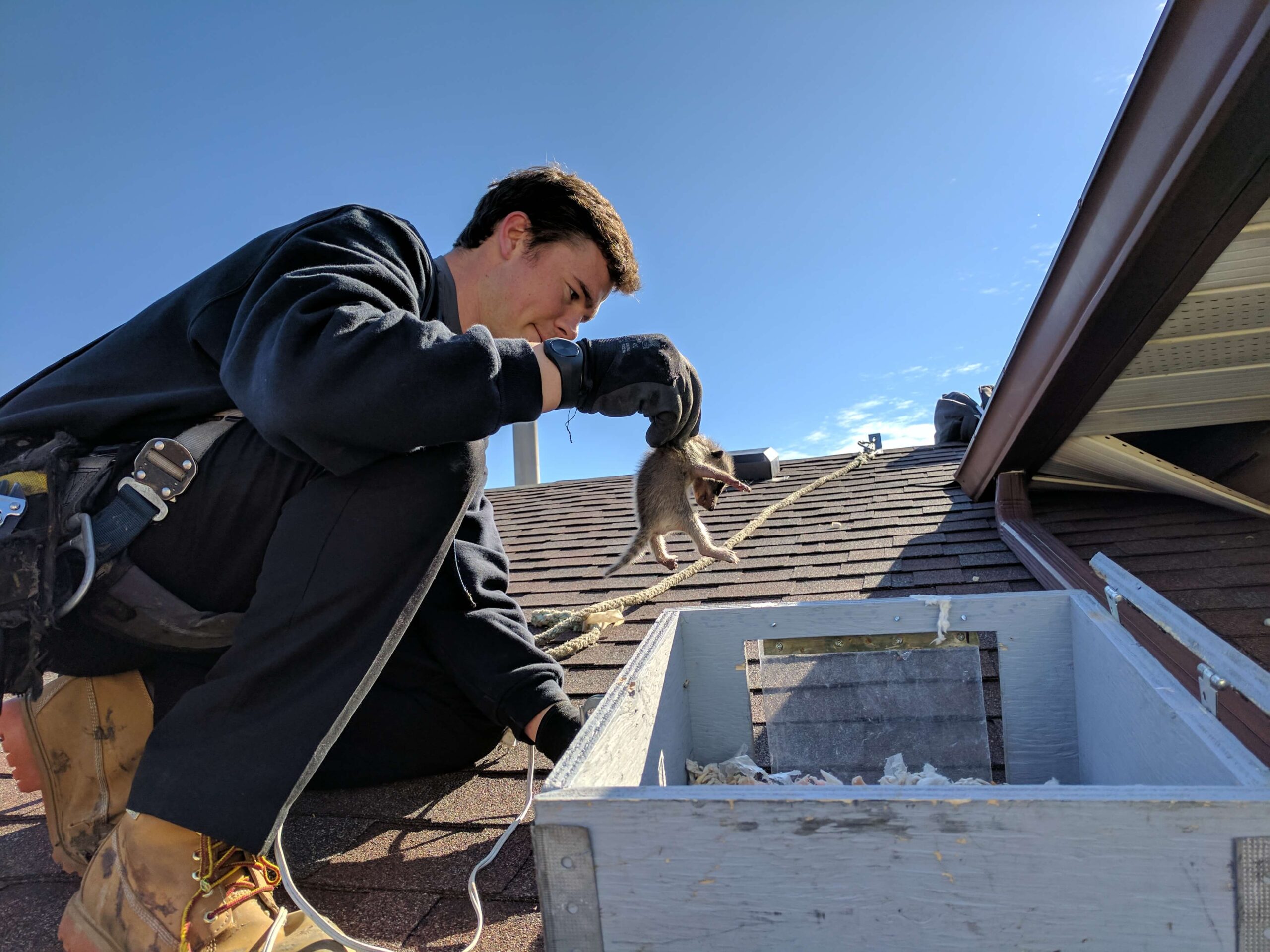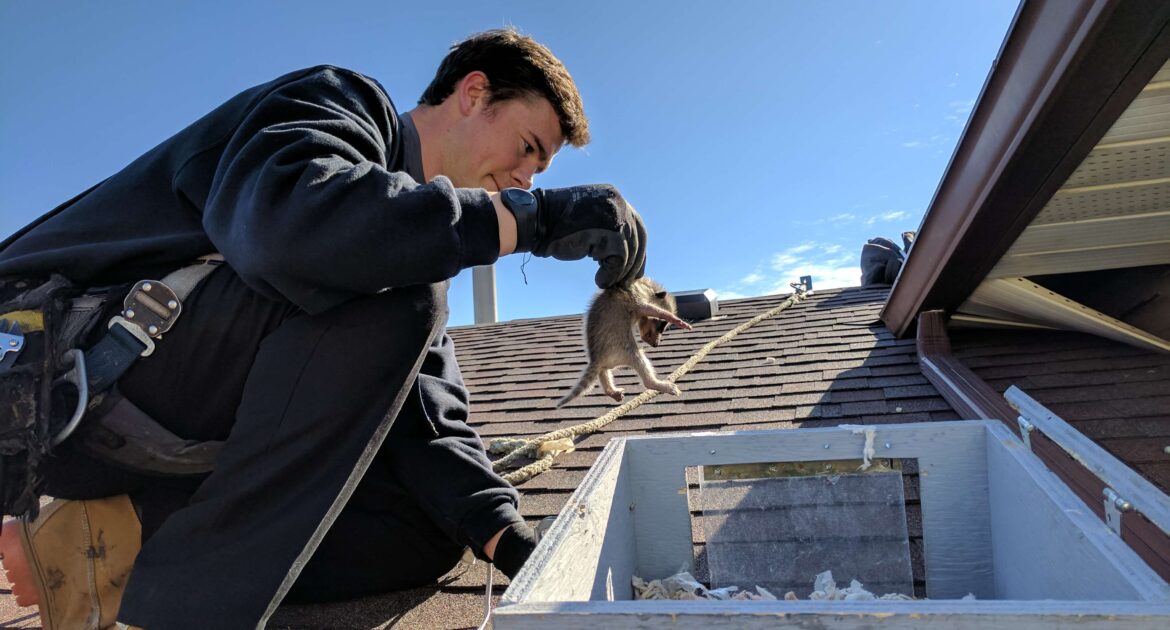Having raccoons in the attic represents significant risks to your property and health. While a raccoon looks friendly and curious, the animal is independent and unintentionally mischievous.
The animal will pull apart roof vents and soffits to make a wide enough hole for it to get inside your house. Once inside, a raccoon will dig at insulation, chew and pull at wires, and contaminate the space with urine and feces.
The presence of a raccoon in your attic is risky. It is necessary to mitigate the issue quickly by contacting wildlife removal in Hamilton.
Health Risks of Raccoons Living in Your Attic Space
Because of their gentle look and curious nature, people often ask, are raccoons dangerous? In most situations, raccoons prefer to avoid confrontation, but that doesn’t mean they are docile or approachable.
Also, raccoons present other risks to families, including pets, that might not include physical injury or aggression. The animal can pose significant health risks to a family if it is nesting in their attic space.
1. Feces
Raccoon roundworm is a dangerous infection both humans and pets can contract. While rare, the condition stems from a parasite in the animal’s intestines, and its eggs and larvae can appear in raccoon poop.
The strange thing about the parasitic infection is it has little to no effect on raccoons, but it has a violent effect on humans and other animals. The disease attacks the central nervous system and is among the most severe infections humans can contract from wild animals.
2. Rabies
Rabies is also a rare condition that is transmittable to humans and pets from wild animals. It affects the nervous system and, more often than not, leads to death.
Raccoons are especially susceptible to rabies, meaning avoiding any contact with the animal is crucial. A rabid raccoon may display several symptoms, including:
- Frothing at the mouth
- Approaching people
- Acting aggressively
Even though human rabies infections are rare, if a wild animal scratches or bites you, wash the wound and contact your doctor for immediate vaccination. Also, ensure your pets remain current on their rabies vaccines.
3. Giardiasis
Giardiasis or beaver fever is another parasitic infection common in raccoons and other wildlife. It is also one of the most common diseases people contract from wildlife.
The parasite resides in the intestines of infected animals and passes in their stool. The illness occurs in people when they ingest the infective cysts from the feces or animals directly. Most commonly, infection occurs when you or your pet come into contact with affected surfaces or ingest contaminated food or water.
The symptoms of the infection typically start one to three weeks after exposure and can last for up to six weeks. The most common symptoms of the condition include:
- Cramps
- Nausea
- Dehydration
- Diarrhea
Importance of Professional, Humane, and Thorough Removal
Raccoon removal is not a DIY job. To ensure the health and safety of you, your family, and the animals, hire a wildlife removal service.
The service will assess your property to determine the primary entry points of the raccoons. It is safer and more humane to install one-way exits and wait for the animals to leave of their own volition.
Once the technicians clear the property, they can assess any cleaning requirements. Depending on the severity of the situation, cleaning may involve anything from minor spot cleaning to complete attic restoration.
Have you heard strange noises from your attic in the evening or noticed a peculiar odour near attic entrances? A raccoon or raccoon family might have found their way inside your home. Call Skedaddle Humane Wildlife Control and schedule a property assessment.




